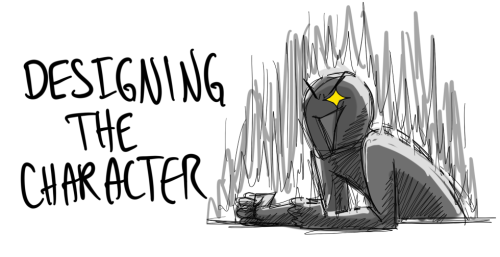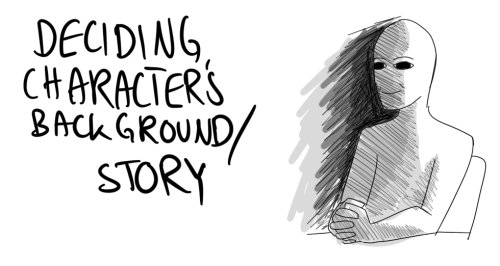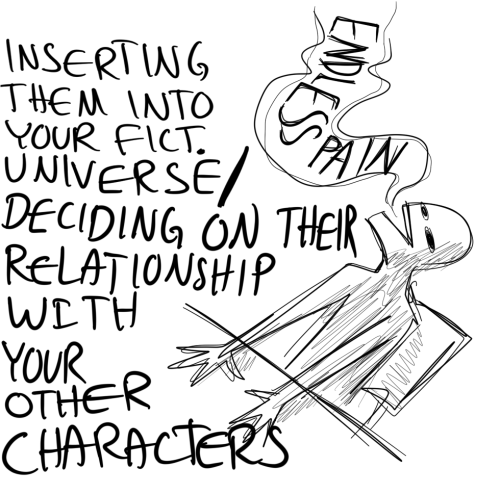How To Write About Grief:
How to write about Grief:
There is no right or wrong way to experience grief. Just as there is no right or wrong way to write it. Everyone is different, each set of circumstances are different.
The point of this post is to show you how different people react in different ways, and give points on how you might write that, depending on your character and story.
Reactions to Grief
Numbness: Your character may go into auto-pilot and be unable to process the events that have unfolded.
Anger: This can be aimed at other people, at a Higher Being, or at nothing in particular.
Unsteady: Your characters may be unsteady. For example, unable to stop their voice from shaking or they may find it difficult to stand.
Focusing on Others: Your character may disregard their own feelings because they are so overwhelmed and instead concentrate on someone else’s well-being.
Seek out routines: Amid upheavals, your character may seek comfort in tasks that are familiar and “safe,” such as working, cleaning, making their bed, making absurd amounts of tea or taking a morning walk.
Pretending that Everything Is Okay: Grief is viewed as an emotion that should cease or be concealed once the funeral is over. So people mention the news in an offhand comment, then talk and laugh as if all is right with the world.
Denial: Some people deny the reality of death and convince themselves that the news is a joke or can’t be true.
Reactions from people surrounding your character:
People may avoid your character as they do not know what to say or simply can’t find the right words.
Some may even go as far as to cross the street when they notice your character approaching.
Even people that the character has known for years may act strange or standoff-ish, simply because they don’t know what to say.
On the other side of that, some people may be overly helpful and friendly.
It is not uncommon for estranged friends, family or others to suddenly reappear in a person’s life after they have experienced grief.
Either because those people want to offer their support and love or because they’re being nosy and they want to be kept up to date on the “drama”.
Most people will move on from the event fairly quickly if they weren’t emotionally invested.
Some people may even get annoyed at your character for still being upset weeks or months later.
When talking about the person they have lost:
Your character may recall a memory or tell a story about their loved one, these are possible reactions. (I have encountered all of them.)
Your character may being to cry or get upset at the thought of the person they have lost.
The person they are talking to may become awkward and avert eye contact when your character brings up the person they have lost.
Others may ask or tell your character to stop talking about the person they have lost. They may roll their eyes, cough awkwardly, or cut off your character mid sentences so that they can change the subject.
Some people may ask inappropriate questions about the circumstances in which the character’s loved one passed away. Depending on the personality of your character then may react differently.
Other things to note:
Grief is not constrained by time.
One of the main problems with grief in fiction is that a character is typically heartbroken for a couple scenes and then happy again. But grief does not evaporate because the world needs saving.
Allow your character to wrestle with their grief.
Your character may feel guilty. Your character may feel a twinge of guilt when they laugh or have a good time with someone else; when they do something to remind them that they’re alive, and their loved one isn’t.
Grief is a game changer. A previously outgoing character may withdraw and isolate themselves. Some people may take grief and/or bereavement as a sign that life is too short; they may make big decisions in an attempt to make themselves feel better and grow away from their pain.
Sometimes grief can help you find your purpose.
At first grief can be all consuming. It hurts and you can’t really control it. It may seem unrelenting. Eventually the grief will become easier to deal with, your character may find the days to be better, but that doesn’t mean that when the grief hits it doesn’t hurt any less.
For most people, grief never really goes away. “Sometimes you have to accept the fact that certain things will never go back to how they used to be.”
It is rare that a person will ever give a long speech about their feelings, a lot of people struggle to even find the words. But that’s okay. Show the reader how your character feels, rather than just telling them.
Don’t pause the plot to deal with the aspect of grief. This could overwhelm the readers and drag the pace down. In reality, life doesn’t just stop due to grief, the world keeps spinning and things still need to be done. Use the character’s grief as a backdrop for the story’s events.
Yes, grief affects the character’s day-to-day life, goals, and relationships. But it shouldn’t drive readers away or stagnate the story. Instead, should engage readers and produce empathy that keeps them turning pages.
You don’t need to tell your readers that everything will be fine. You don’t need to provide all of the answers.
“Skirting grief and treating it lightly is easy. But by realistically portraying it through a variety of responses and its lasting effects on the character’s life, readers will form a connection with your characters.“
More Posts from Ancientbruisesbrokenruses and Others
I also love giving them meds and drugs. Like, an empath needs anti-depressants, mood-stabilisers, etc. And there are special therapists for empaths, by law in many territories, any person showing signs of being an empath must take a government-issued test and, if empathy positive, are assigned a government approved therapist.
Happy Storyteller Saturday! Do any of your characters wear glasses? I recently got a pair, and the world is much sharper than it used to be!
I’ve been thinking that perhaps they should, as well as rethinking my “supes never get sick” rule. As it stands, there are enchanted glasses that help with eyestrain, translations, and seeing through glamours, but no one I’ve written so far needs them correctively
You know, just because you’re white doesn’t mean you can treat people who aren’t as less than human


10 Things I Hate About You (1999) dir. Gil Junger
My Favourite Couples Are Those Who Could’ve Been Amazing Friends Or Lovers And Work Well As Both But Prefer Friends
This doesn’t make much sense in retrospect but a good example would be Percabeth. Sure, they’re the power couple of the century, but I think they’d work very much better as good friends. Like siblings almost. You know?
ALSO! do you know how many fuckers have fucking cheated on their partners? A fuck load. You know this right? It’s not some great, mystical feat. He didn’t fuck a unicorn. Unlike Katherine the Great. I’m sorry that was a bad history joke. Or, I think it was funny. You’d get it if you weren’t an idiot. Are you an idiot? Oh right, you are. We covered this in my last one of these, didn’t we? I thought me did. Well, let me restate this. You’re an idiot. you’re welcome. Have a nice fucking day.
Slutshaming women is not ok Slutshaming Alexander Hamilton is totally ok Tumblr logic
What I do is give any supe with a super power that test the capacity of the human body something to help with that. It’s to help with the strain and such. Night vision? Glasses. Heat vision? Glasses. Super vision? Glasses. Super hearing? Hearing aid. Super sonic flight? Hearing aid. Super speed? Hearing aid and muscle/knee brace. And(thinking back to The Flash here) a special diet. Super strength? Muscle brace. Just because they have super powers, doesn’t make them completely immune to anything related to the human body. They are still, after all, human. Well…they bodies are at least. Their powers just make them a bit for resilient to it.
It’s actually really fun. Normal powers all have a drawback because they’re super, not meant for the human body to handle. I really enjoy brainraining those. Maybe invisibility hurts the skin so they need some sort of super skin care regimen. That could lead to some superhero merch(like the underooes, lunch boxes, etc. That we have). It’s just fun.
Then there’s the supes with more…subtle powers. Not as extravagant or well known like super strength or flight. Empaths[1] are seen as mentally unwell. Due to their powers, they have sharp bits of rage. Mood swings. And stuff of the like. They have to take anti-depressants as well as mood-stabilisers and other pills/drugs to help with the down-sides of their powers.
1: (chiefly in science fiction) a person with the paranormal ability to apprehend the mental or emotional state of another individual.
Happy Storyteller Saturday! Do any of your characters wear glasses? I recently got a pair, and the world is much sharper than it used to be!
I’ve been thinking that perhaps they should, as well as rethinking my “supes never get sick” rule. As it stands, there are enchanted glasses that help with eyestrain, translations, and seeing through glamours, but no one I’ve written so far needs them correctively
Introducing: #BusinessForBC

Right now, a growing number of businesses are pledging to guarantee birth control coverage for their workers. Why? Because it’s essential health care that helps workers thrive, and because access to birth control fosters more equitable, inclusive working environments.
Business for Birth Control’s call to action is so important right now, because sexual and reproductive health care is under threat in the U.S. and around the world. Any day now, the Supreme Court will make a decision on two dangerous Trump administration rules that would allow employers and universities — based on their personal objections — to deny birth control coverage to employees and students. And the Trump administration has tried to bully the United Nations to eliminate references to sexual and reproductive health as part of their global COVID-19 plans, ignoring the essential nature of reproductive health care during a pandemic and always.
Businesses that pledge to be a #BusinessforBC are helping to educate and inspire others in the business community to show their support for accessible birth control for all people. These companies know that access to birth control improves economic and health outcomes. Nearly 90% of women of reproductive age have used contraception in their lifetimes, and access to birth control has been proven to increase education level and wage earning.
Pledging to guarantee birth control access is part of a larger commitment to racial and gender equity, too: Women of color, especially Black and Indigenous women, face disproportionate barriers to accessing affordable health care. Access to a full range of sexual and reproductive health services is key to addressing historical disparities in unintended pregnancy, maternal mortality rates, and higher rates of breast and cervical cancer.
Women of color also face greater institutional barriers to promotion in the workplace. Black women and Latinas in the U.S. today earn just over half of what their white male counterparts earn. We have a long way to go, but committing to birth control coverage is one step toward greater racial equity in the workforce and more inclusive economic growth.
Businesses that have pledged to be a #BusinessforBC include:
Amalgamated Bank
Argent
Bad Robot Productions
CREDO Mobile
Female Quotient
Hims & Hers
Jaya Apparel Group, parent company to Cinq à Sept and Likely
Postmates
The Helm
The Lede Company
Trillium Asset Management
Tumblr
Learn more about #BusinessForBC at BusinessForBirthControl.org.





Wish I had this years ago. Could’ve saved me my mental health.





the suffering never ends
“like blowing bubbles”
That’s gay.

do magical kids get yearbooks??? this was such a great excuse to draw 16 portraits
-
 memel9ver86 liked this · 2 days ago
memel9ver86 liked this · 2 days ago -
 antihell liked this · 1 week ago
antihell liked this · 1 week ago -
 honeybeetlejuice liked this · 1 week ago
honeybeetlejuice liked this · 1 week ago -
 blue-logos reblogged this · 2 weeks ago
blue-logos reblogged this · 2 weeks ago -
 blue-logos liked this · 3 weeks ago
blue-logos liked this · 3 weeks ago -
 gemstarstarlight liked this · 3 weeks ago
gemstarstarlight liked this · 3 weeks ago -
 your-interpol-agent reblogged this · 3 weeks ago
your-interpol-agent reblogged this · 3 weeks ago -
 tzarina-alexandra liked this · 3 weeks ago
tzarina-alexandra liked this · 3 weeks ago -
 milkygastrobones reblogged this · 3 weeks ago
milkygastrobones reblogged this · 3 weeks ago -
 chierry reblogged this · 1 month ago
chierry reblogged this · 1 month ago -
 miszart liked this · 1 month ago
miszart liked this · 1 month ago -
 laughysaffy-skies reblogged this · 1 month ago
laughysaffy-skies reblogged this · 1 month ago -
 write-with-will liked this · 1 month ago
write-with-will liked this · 1 month ago -
 spideronthesun reblogged this · 1 month ago
spideronthesun reblogged this · 1 month ago -
 spideronthesun liked this · 1 month ago
spideronthesun liked this · 1 month ago -
 laughysaffy-skies liked this · 1 month ago
laughysaffy-skies liked this · 1 month ago -
 tbiris reblogged this · 1 month ago
tbiris reblogged this · 1 month ago -
 blaetter liked this · 1 month ago
blaetter liked this · 1 month ago -
 tigerkat24 liked this · 1 month ago
tigerkat24 liked this · 1 month ago -
 l-oh-herain liked this · 1 month ago
l-oh-herain liked this · 1 month ago -
 xxlionheartedgirlxx liked this · 1 month ago
xxlionheartedgirlxx liked this · 1 month ago -
 galacticdrift liked this · 1 month ago
galacticdrift liked this · 1 month ago -
 seidreamblogs reblogged this · 1 month ago
seidreamblogs reblogged this · 1 month ago -
 kadann liked this · 1 month ago
kadann liked this · 1 month ago -
 gywo reblogged this · 1 month ago
gywo reblogged this · 1 month ago -
 yoshifics reblogged this · 2 months ago
yoshifics reblogged this · 2 months ago -
 sarcasticfirefighter liked this · 2 months ago
sarcasticfirefighter liked this · 2 months ago -
 68saturnism reblogged this · 3 months ago
68saturnism reblogged this · 3 months ago -
 68saturnism liked this · 3 months ago
68saturnism liked this · 3 months ago -
 1d-ris liked this · 3 months ago
1d-ris liked this · 3 months ago -
 princesscas liked this · 3 months ago
princesscas liked this · 3 months ago -
 girlonthefireescape liked this · 3 months ago
girlonthefireescape liked this · 3 months ago -
 archive-of-sorts reblogged this · 3 months ago
archive-of-sorts reblogged this · 3 months ago -
 massive-blood-loss liked this · 3 months ago
massive-blood-loss liked this · 3 months ago -
 strixobscuro liked this · 3 months ago
strixobscuro liked this · 3 months ago -
 ohfugecannada liked this · 3 months ago
ohfugecannada liked this · 3 months ago -
 heckcareoxytwit reblogged this · 3 months ago
heckcareoxytwit reblogged this · 3 months ago -
 heckcareoxytwit liked this · 3 months ago
heckcareoxytwit liked this · 3 months ago -
 scarramoo liked this · 4 months ago
scarramoo liked this · 4 months ago -
 blerglblerglblerg reblogged this · 4 months ago
blerglblerglblerg reblogged this · 4 months ago -
 cozybrushes reblogged this · 4 months ago
cozybrushes reblogged this · 4 months ago -
 luvtmf liked this · 4 months ago
luvtmf liked this · 4 months ago -
 cipherstuffs reblogged this · 5 months ago
cipherstuffs reblogged this · 5 months ago -
 cipherstuffs liked this · 5 months ago
cipherstuffs liked this · 5 months ago -
 warmhearts-and-beautifulbrains liked this · 5 months ago
warmhearts-and-beautifulbrains liked this · 5 months ago -
 reysarcade reblogged this · 5 months ago
reysarcade reblogged this · 5 months ago -
 zannibythesea liked this · 5 months ago
zannibythesea liked this · 5 months ago -
 buckandjohn reblogged this · 5 months ago
buckandjohn reblogged this · 5 months ago -
 lemongrassbreeze liked this · 5 months ago
lemongrassbreeze liked this · 5 months ago -
 tinybrainboy liked this · 5 months ago
tinybrainboy liked this · 5 months ago